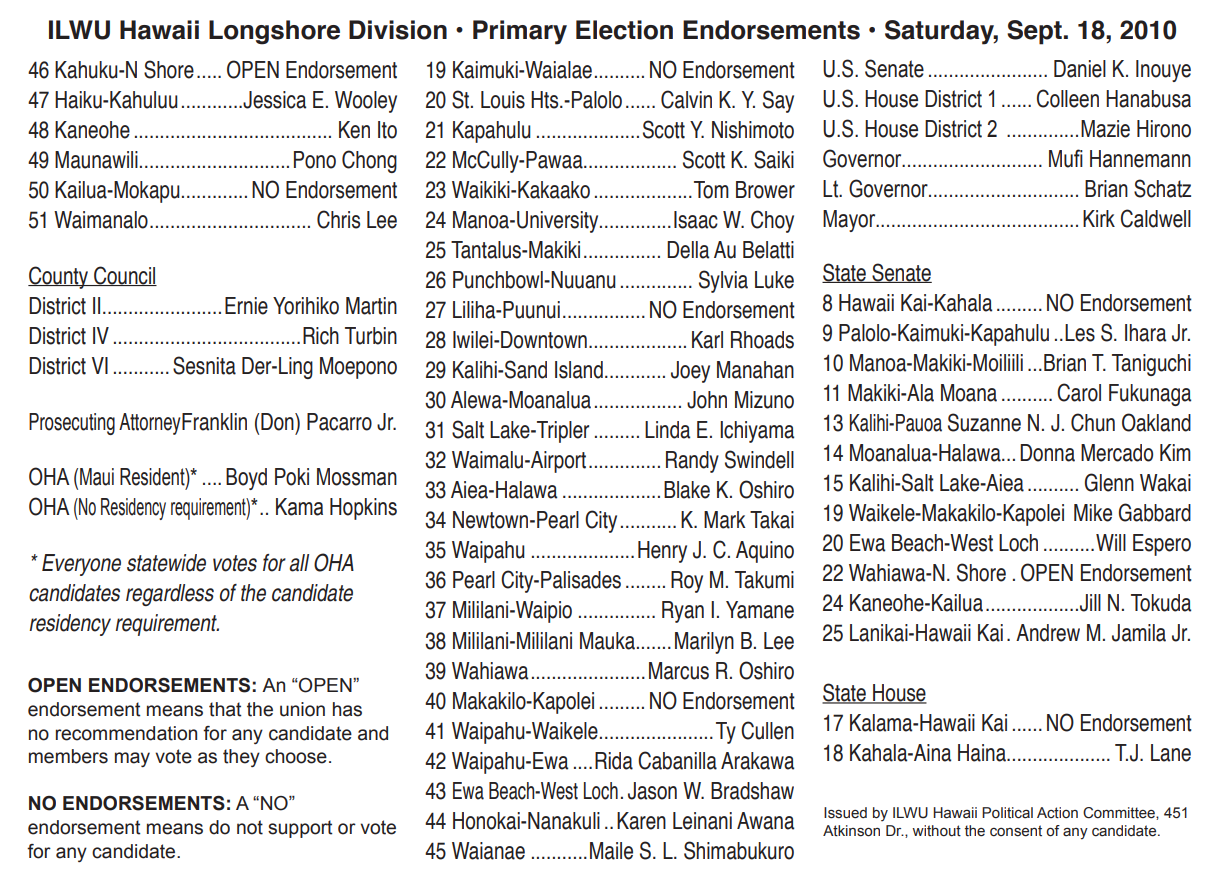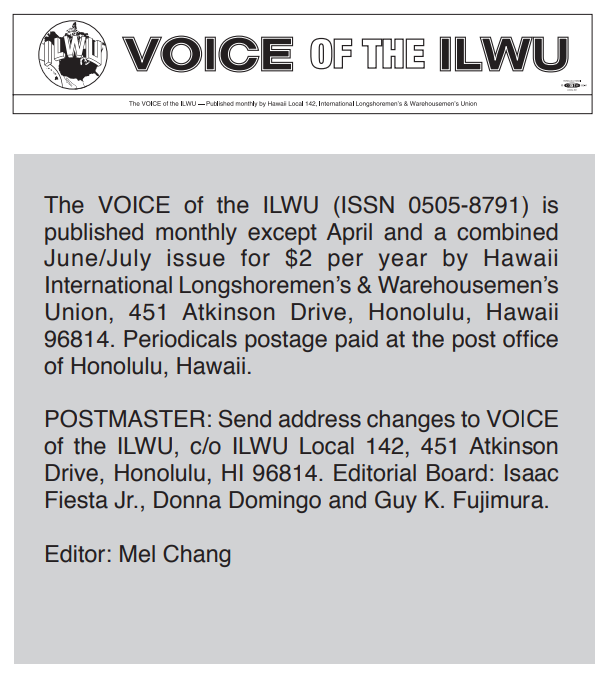Our new representative in Congress thinks it’s a good idea to repeal the Jones Act. He thinks it would cut costs and save a little money. The Jones Act (officially the Merchant Marine Act of 1920) requires all shipping between U.S. ports to be done by U.S. companies, with U.S. crews, and with U.S. built and flagged vessels. Similar laws apply to airlines and cruise ships. These laws do not allow foreign companies to carry cargo or passengers between U.S. ports.
Let’s suppose the Jones Act were repealed. This would allow foreign companies to carry cargo between Hawaii and the Mainland, between Alaska and the Mainland, and between ports on the East, West, Gulf Coast and Great Lakes.
Without the protection of the Jones Act, foreign companies could control Hawaii’s shipping lifeline to the world. It would be an ideal opportunity for China’s shipping companies as their ships go to the U.S. fully loaded but return to China from West Coast ports with 50-60 percent of their containers empty. In 2008, seven million loaded containers arrived at the ports of Long Beach and Los Angeles and less than three million loaded containers left the ports.
Matson and Sea-Land have the opposite problem where their ships come to Hawaii fully loaded and return to the Mainland half empty. In 2008, container cargo arriving at the Port of Honolulu from the Mainland was 529,294 TEU (equal to a twenty foot container). The outbound container cargo to the Mainland was only 295,279 TEU. Foreign imports to Hawaii was only 21,915 TEU and exports out of Hawaii to foreign countries was 12,459 TEU. (Source: US Army Corps of Engineers US Waterborne Container Traffic in 2008.)
Chinese companies such as COSCO, CSCL, or OOCL could easily handle all the container cargo to and from Hawaii and do it at a cost far below Matson and Sea-Land. Their ships already sail near Hawaii on a number of transpacific sea routes and stopping in Honolulu could be done at little extra cost.
Rates would increase
The Chinese companies could cut shipping rates and drive the smaller Matson Company out of business. Remember what happened to Aloha Airlines after Mesa Air came to Hawaii and cut airfares? Sea-Land is owned by the world’s largest shipping company, the Danish APM-Maersk company, but Maersk could decide to leave the Hawaii market and not compete with the Chinese. This would give foreign owned companies complete control of all container shipping to and from Hawaii. With no competition, these companies could increase their shipping rates even higher than before.
This is not to say that foreign owned companies are bad or operate any differently from U.S. companies—both are driven to maximize profits. There are many fine foreign owned companies which care about the local community and have done well for Hawaii’s people, and there are U.S. companies which show little concern for Hawaii’s welfare. However, with U.S. companies, more information is available on their corporate structure and management. U.S. companies and more likely to be concerned about their public image in the U.S. We share a common history and cultural values with their management and stockholders, and most importantly, U.S. companies share our national interests.
It would hurt Hawaii
Hawaii residents would save a little bit of money for a very short time, but then rates would go up and we would pay more for everything. We would also lose hundreds of jobs, millions in wages, and the tax monies paid by Matson. Everyone in Hawaii would suffer and end up paying more.
Now suppose the United States tried to impose trade sanctions on North Korea or sell advanced military weapons to Taiwan. A Chinese company could see this as a threat to their nation’s security and cut service to Hawaii or increase shipping rates. They could refuse to move military cargo.
This could never happen under the Jones Act. Protecting the national security of the United States was probably one of the most important purpose of the Jones Act. Similar laws apply to commercial airlines for the same reasons. Vital services such as shipping have to remain under the control of U.S. owned companies. In case of a national emergency or war, the U.S. government can require US companies to turn over their ships and aircraft to the U.S. military.
The U.S. military continues to rely on U.S. owned airlines and shipping companies to quickly move troops and supplies to Afghanistan, Iraq, South Korea, the Philippines, and other parts of the world.
The Jones Act was passed to make sure the U.S. would always have a strong, commercial shipping industry. There would always be U.S. companies with the skilled workers who could build ships and there would always be U.S. sailors to operate the ships. It was called the Merchant Marine Act because it would serve and benefit the United States in times of war and peace. Many countries have similar laws to protect their national security and economic interests.
More Akamai
Our other three more knowledgeable representatives in Congress, Daniel Inouye, Dan Akaka, and Mazie Hirono, know the history and understand the importance of maintaining the Jones Act. They have the experience and intelligence to know what is best for Hawaii and our nation.
Send Hanabusa to Congress
In the General Election this coming November 2, Hawaii will have the chance to get rid of Charles Djou and elect Colleen Hanabusa to represent Hawaii in Congress.
The Republican Party will spend millions to keep this seat. Karl Rove, the mastermind behind former President George W. Bush, is advising Djou’s election campaign. Rove will use the same tricks used to elect George Bush. Rove will manipulate the issues, confuse people, and drive wedges to split voters.
Djou is taking advantage of his position to spend tax payer money and campaign for the November election. He used tax money t pay for slick mailers and automated phone calls to Hawaii voters.


